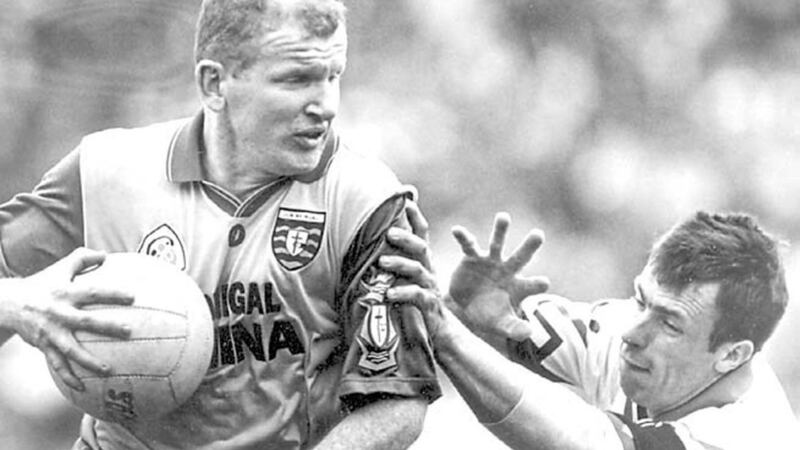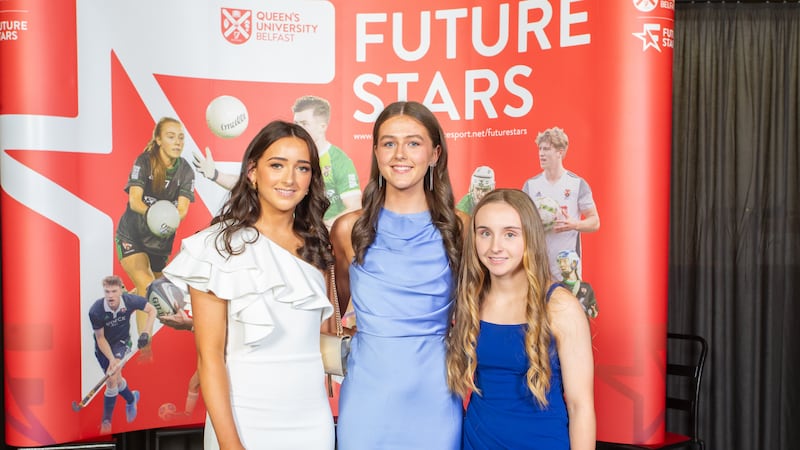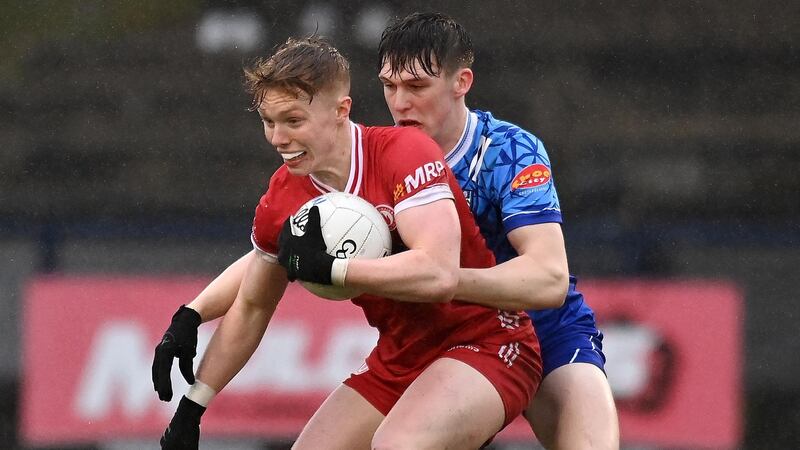THE sub-heading in The Irish News read: ‘Bonner set to call it a day after Clones defeat’.
He had stopped in the ever-crowded St Tiernach’s Park tunnel to speak to reporters after Donegal had been beaten by Cavan in the 1997 Ulster semi-final.
It was the end of the line for him, and it seemed that way for that Tír Chonaill team too. They had been in decline for a while and had dropped back to Division Two before their defeat to one of their own, Martin McHugh, who took Cavan to provincial glory.
A sore blow to the kidney was the final insult as he told the journalists: “As far as I am concerned, it is probably the end.”
Four weeks later, he was presented as the new Donegal manager.
“I came straight in from playing. I was 31 years of age, I played against Cavan in the semi-final of the Ulster Championship in ’97 and we lost that match, and four weeks later I was managing the senior team. It was fairly quick.”
The decline proved reversible. They won promotion back to the top flight and came within a Joe Brolly intervention (or as they would see it, a Geoffrey McGonagle push) of an Ulster title in 1998.
If it seems like a long time ago, that’s because it is. Everything about football has changed in the 17 years since he left the job the first time, but he’s stayed well enough invested to know that for himself.
As he takes the call, he’s just leaving one meeting in Ballybofey to head to another in Donegal town. That’s his life now, but he knew what he was taking on.
“There’s been a lot of changes since then. The game’s evolving at such a pace, even in the last number of years.
“The players are as close to full-time professional athletes as you will get without actually being one. That goes for management as well.
“At that stage, I had a couple of selectors and a trainer and very little else. Now the backroom team is big numbers and it’s all hands on deck, all really good, professional lads.
“It’s a big undertaking but I knew exactly what it was when I took it on. But it keeps evolving at a frightening pace, there’s no doubt about it.”
Terms of office with the minors and under-21s of the last few seasons have led him back down the path to the top job.
His fingerprints are already all across what he now inherits from Rory Gallagher. It’s easy to forget that the county had never been in an All-Ireland minor final before they went there in 2014.
The following year was a disappointment, surprisingly losing an Ulster semi-final to Derry, but the products that have rolled off the shelves of those couple of years’ football were already backboning the senior side last year.
Natural talent is not the problem, but rather the way in which Donegal football has adopted Jim McGuinness’ defensive approach across the board.
Recent events have proven that there will be no All-Ireland title for any team that sets itself up to play without forwards, with Mayo’s performances over the past few years against Dublin finally hitting home for those with one eye on stopping the blue juggernaut.
“A lot of teams over the last six or seven years have been basing their style of play on what Donegal did. You go to club matches in Donegal and you could see it at under-14 football, 12 and 13 boys behind the ball.
“It’s just the way the whole thing has gone but it’s one of the things we need to change.
“When I took on the senior job, I knew Donegal as a county, we needed to become more adaptable.
“It’s very difficult when you try to play solely a running game for 75-plus minutes - it’s actually impossible.
“You’re not going to sustain that running game with bodies behind the ball and trying to break, you just can’t do it.
“When you go into Croke Park, it’s even more difficult.
“You look at the top teams at the minute, Dublin and Mayo, they’ve become much adaptable and the use of the kick has been much more evident with those guys.
“Kerry have always been that way. Tyrone are looking at their style, and those are the top four teams in the country.
“We’ve got to get back up there, we’re out of that at the minute and we’ve a lot of work to do to get back in, but that’s the challenge that’s ahead of us.”








